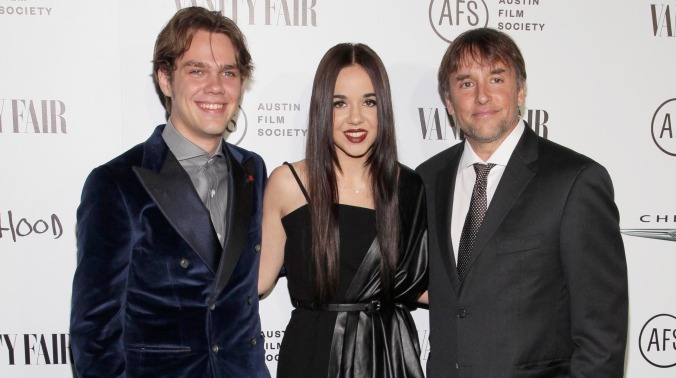Richard Linklater's daughter asked him to kill off her character halfway through Boyhood
Lorelei Linklater lost interest in filming Boyhood in the middle of Richard Linklater's 12-year shoot

When all is said and done Richard Linklater will be remembered as cinema’s preeminent long-term filmmaker, with both the 12-year shoot for Boyhood and 20-year shoot for Merrily We Roll Along under his belt. Anything can happen when you’re dealing with such a long time frame, and one has to be prepared to adjust and adapt if, for instance, your daughter up and decides she just doesn’t want to do the movie anymore. Luckily, Linklater was able to persuade his real-life kid to keep playing the role of one of the Boyhood kids, so the production didn’t have to resort to drastic measures, per a new interview with The Guardian.
“That little extrovert kid who you see singing and dancing in the early scenes? Well, suddenly she hits puberty and everything changes,” the Before Sunrise director recalls of his daughter Lorelei Linklater’s attitude to acting. “So one day she asked me: ‘Can you kill me off?’ Like an actor leaving a TV soap. ‘It’ll be a memorable episode and then I’ll be off the show.’ And I had to tell her: ‘No, that’s a little too dramatic for what I have in mind.’”
Lorelei herself admitted to some discomfort of having her growth between ages 9 and 21 on display when speaking with Texas Standard back in 2015. “When you’re the person being documented, rather than being fascinating, it’s more just mortifying,” she explained. “And, I know it’s normal, but it just was hard to have the whole world see me in those awkward stages and, how do I say this, thinking that that’s me. A person that I don’t relate to whatsoever—people thinking is me.”
The actor also had some interesting critiques of her dad’s film, pointing to a scene where Mason (Ellar Coltrane) tells a girl that he’s reading Kurt Vonnegut and she responds that her brother likes Kurt Vonnegut as an example that it’s “not a feminist movie.” She added, “And, I don’t know why… that may not sound like it makes any sense but, I don’t know, I just didn’t think the character really had very much personality towards the end.”
“What I’m saying now probably sounds weird. It’s like, ‘Oh she’s talking about her dad, she’s saying negative things about that, why is she doing that?’ He knows,” Lorelei said. “And he’s not, I don’t think he’s phased by what I have to say. I’m always honest with him. He knows that I’m very happy to have been a part of it and think he’s an amazing artist. He knows I think that, which I do. But he also knows that I did have some problems with the film.”